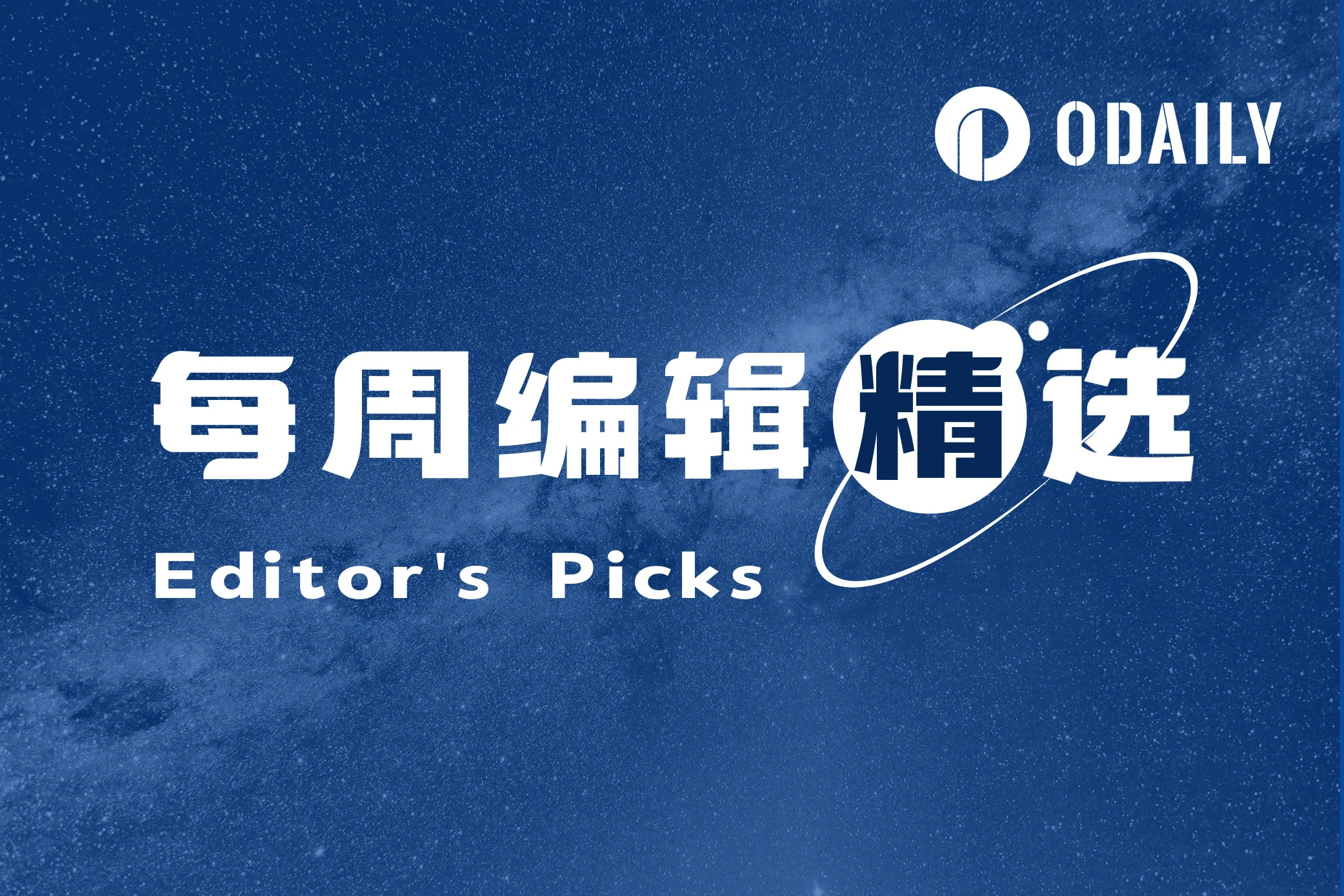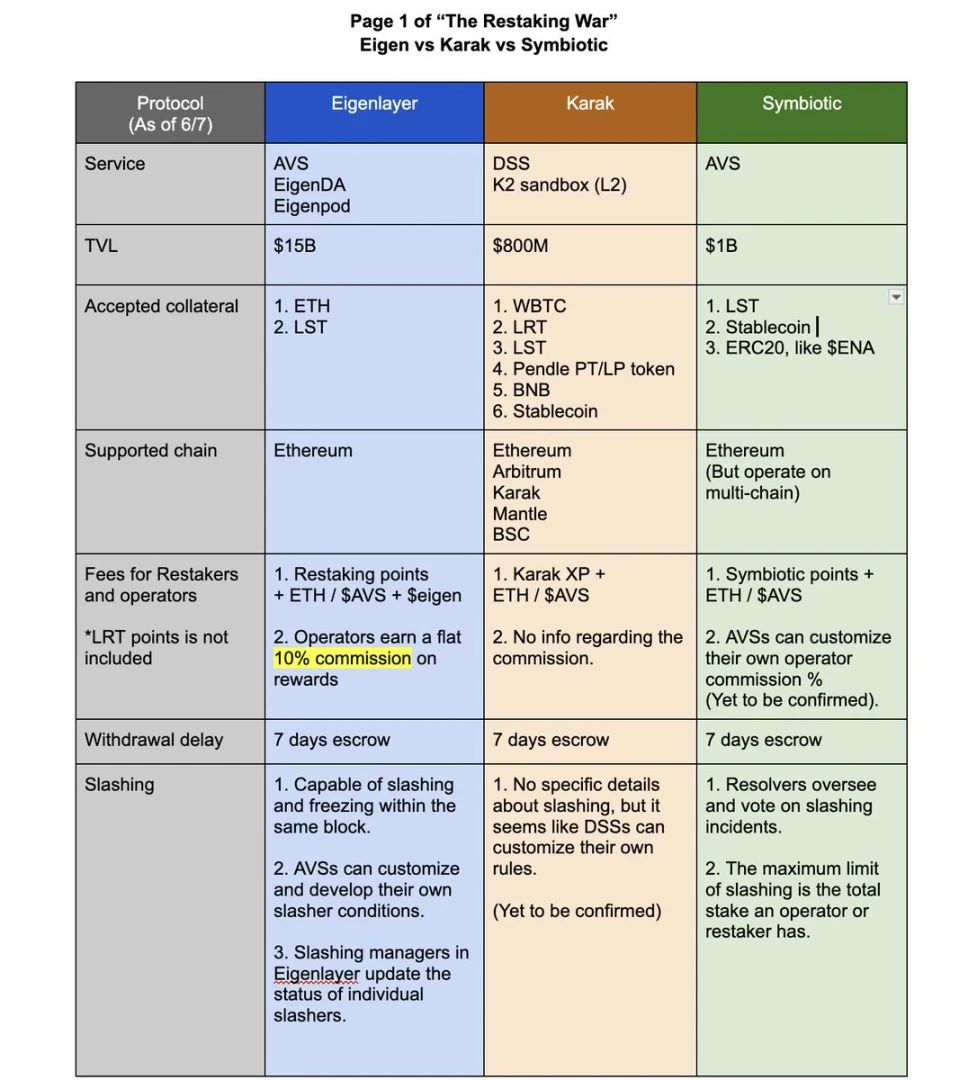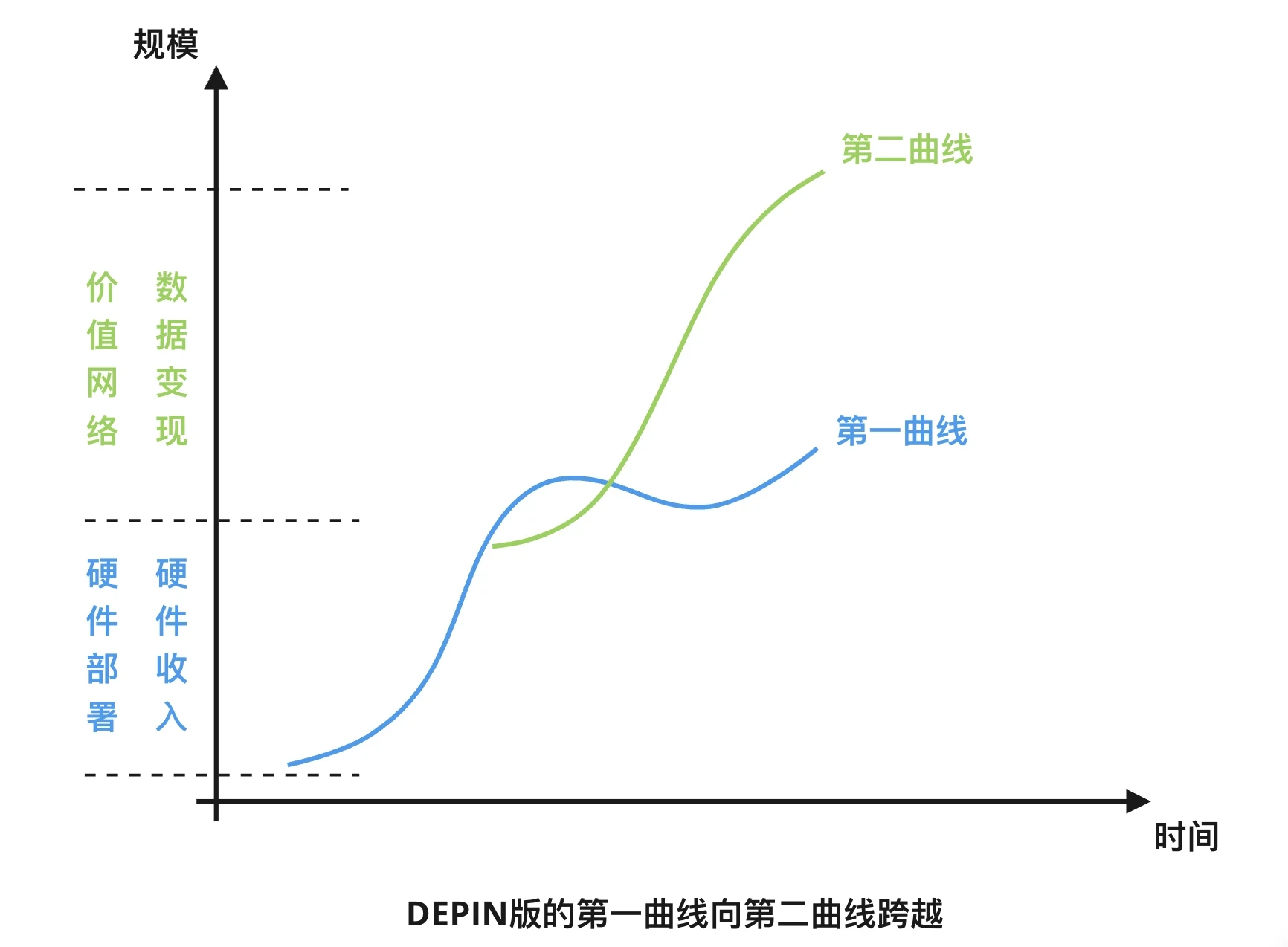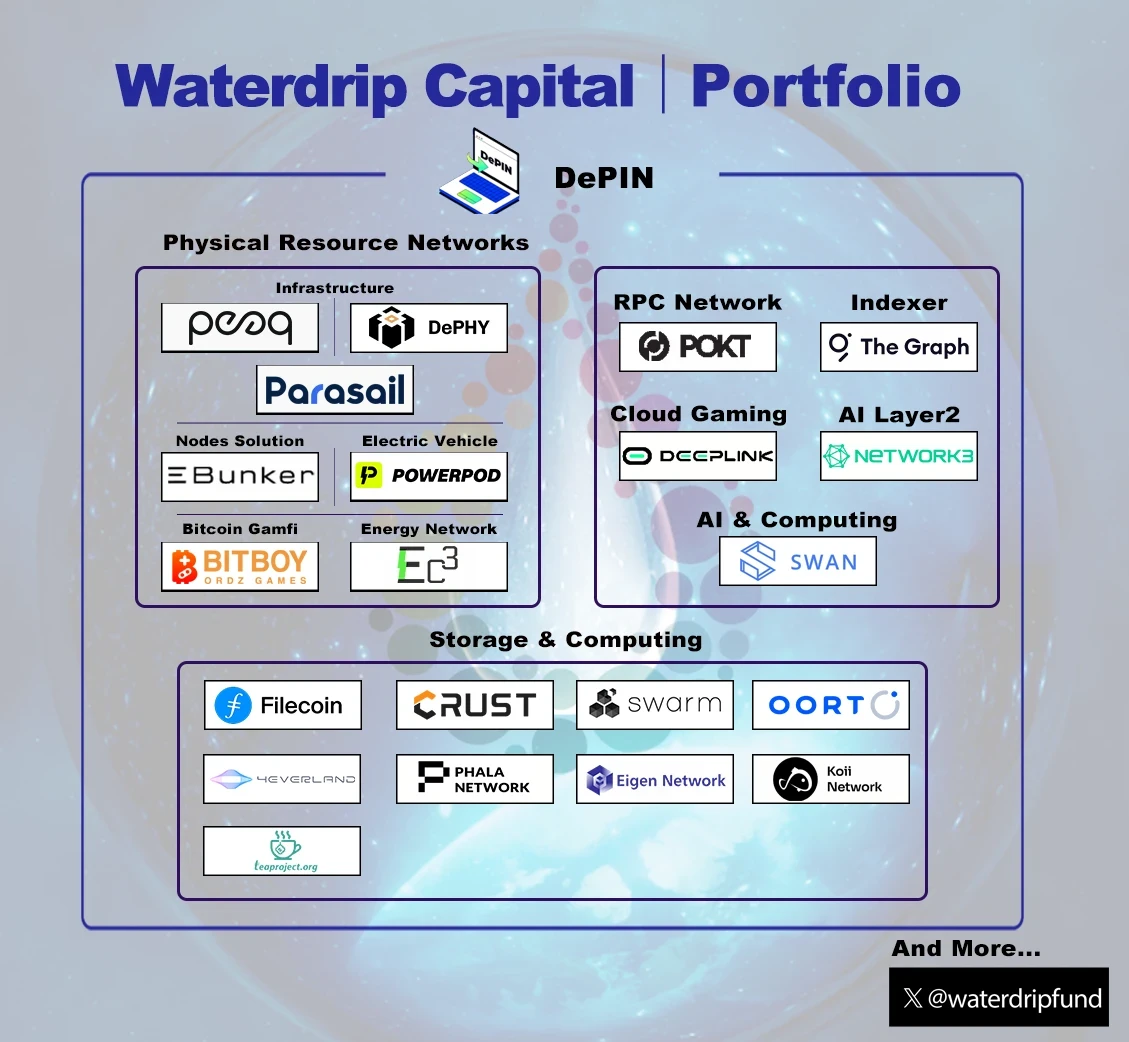Weekly Editors Picks is a functional column of Odaily Planet Daily. In addition to covering a large amount of real-time information every week, Planet Daily also publishes a lot of high-quality in-depth analysis content, but they may be hidden in the information flow and hot news, and pass you by.
Therefore, every Saturday, our editorial department will select some high-quality articles that are worth spending time reading and collecting from the content published in the past 7 days, and bring new inspiration to you in the crypto world from the perspectives of data analysis, industry judgment, and opinion output.
Now, come and read with us:

invest
Meme is the track with the highest odds in this round, focusing on blue-chip stocks such as PEPE and WIF, and small and medium-sized stocks such as DOG and BOME.
AI/DePIN, riding on the momentum of AI development, focuses on computing power supply (Arweave/AO, io.net), algorithms (Bittensor), and AI economy (Artificial Superintelligence Alliance, ASI).
RWA, which is the only way for large-scale application of blockchain, focuses on Ondo Finance and Swarm Markets.
The Social sector is responsible for the user growth potential and ecosystem nurturing, with a focus on Ton and projects within the ecosystem, Farcaster, and UXLINK.
LSD and LSDFi, which serve as the landing points for incremental funds, focus on Lido/Rocket Pool, Ether.fi, EigenLayer, Renzo, StakeStone, Karak, and Pendle Finance.
In the BTC ecosystem, focus on the rune DOG.
The art of trading: sharing the application of technical indicators
Tao: represents investment philosophy and investment beliefs, that is, the direction, goals and values of investment. Including analysis of long-term market trends, macro conditions and fundamentals.
Law: represents the laws and rules of investment, including investment strategy, risk management, and asset allocation.
Technique: represents technical analysis, quantitative analysis, and trading psychology of investment.
Among them, the existence of technical indicators is to help us judge transactions after sufficient understanding and risk control, and cannot be used directly to make profits. After all, all technical indicators are lagging and cannot be 100% accurate. Only after we have sufficient understanding and risk control can we assist investment, otherwise it is gambling.
The article also introduces in detail the interpretation and application of MA and MACD indicators, the interpretation and application of Boll and RSI indicators, and flag-shaped consolidation variations.
Has BTC hit bottom? Nine on-chain indicators explain current market trends
At present, some indicators show that Bitcoin is almost at the bottom of its decline. Dont panic, continue to stock up on Bitcoin.
In-depth analysis: How much impact does mining cost have on the lower limit of BTC price?
When the BTC price was at $42,000, the profit margin of the main mining machine T 21 was negative, which means that buying BTC in the secondary market was more cost-effective than mining at this time.
Looking back at historical data, if you buy BTC near the mining cost line every time, it is equivalent to obtaining BTC at a lower cost than the miners. From a medium- to long-term perspective, the certainty of obtaining profits is greater than the uncertainty of taking risks.
Also recommended: Ten Questions and Ten Answers: What is the impact of the German governments stock market crash, the culprit of the plunge?
Ethereum ETF is coming, which ecosystem tokens are worth paying attention to?
L2, DeFi, LSD, ETH-collateralized stablecoin protocols and re-staking.
Solana ETF is coming soon? Which tokens are expected to surge?
JUP, JTO, IO, W, TNSR, PRCL, DRIFT, RAY, NEON, SLND.
Decoding a16z’s crypto portfolio: What are the returns of the top 25 coins?
a16zs portfolio contains about 50 cryptocurrencies. In the first half of the year, 11 of the top 25 cryptocurrencies showed net growth. If the losses caused by the decline in the prices of other currencies are subtracted, the total sales price is $3,158.82. Therefore, the total profit ($3,158.82 - $2,500) is $658.82, and the return on investment (ROI) is 26.35%, which is not as good as investing in Bitcoin or Ethereum.
Also recommended: Observations on the primary crypto market under the world economic landscape: DePIN, Intent and Abstraction may emerge as a new force , Graphical market status: adjustments are inevitable, and it is more difficult to discover 100x coins , 2024 first half performance review and investment philosophy sharing of 20 active investment institutions , The world under the ICO bubble: some have become Bitcoin tycoons, while others have a market value of only 70,000 .
Entrepreneurship
A must-learn course for seed round founders: You are the one telling the story, not the PPT
In the early stages, VCs are looking for signals. Tell a compelling story instead of a PowerPoint presentation. A better option is to launch a half-baked product and find early users, and care about them. Here’s the problem: many founders raise millions and build something nobody needs because their core customer base is VCs who want to invest in them. They sell equity, not their own product.
All early-stage investing is a bet on the founder and his or her ability to scale the company. In a world where attention is scarce, capturing it is half the battle.
Exploring the economics of points: How to design an effective points program?
Points programs in Web3 have developed a variety of complex mechanisms, many of which are used in combination. The most effective programs include behavioral (actions about user behavior and earning points), basic (points issuance schedule, timeline, airdrop size, etc.), and promotional (rewarding users with a higher relative share of points through specific, targeted behaviors), and some are beginning to experiment with planned rewards (other immediate benefits beyond the expectation of airdrops).
Although points programs perform well in the launch phase, teams should be aware of transparency issues, points fatigue, and product-market fit masking issues. Through timely communication, reasonable incentive mechanisms, and ensuring organic user participation, teams can maximize the effectiveness of points programs while avoiding potential negative effects.
CEX Listing Guide: A Must-Try Course for Founders
This guide is divided into five parts: token listing documents, business negotiations with CEX and market makers, community and social media promotion, media coverage, and other preparations.
KOL’s Self-introduction: How to Become a Crypto KOL?
If you think you really understand a concept, try writing it down. Youll find that its much harder to explain your ideas clearly on paper than to visualize them in your head.
The quality of your content on Twitter is important. While popular posts can be accidental, sustained follower growth requires insightful and unique content, which takes time and effort. Some posts will fail, but the ones that succeed will attract quality followers. Persistence is key.
In the long run, you need to stay motivated through curiosity.
The most popular commercialization models of crypto KOLs: paid posts, blog sponsorships, KOL private equity investments, advisory/ambassador positions, referrals, selling coins to fans.
Also recommended: Crypto Industry Trends in the First Half of 2024: Ethereum Dominates, and the Proportion of Asian and African Startups Reaches a New High .
Airdrop Opportunities and Interaction Guide
As the airdrop tide recedes, who is swimming naked?
Starknet: There is a lot of user loss, but the network quality has not declined significantly; ZKsync: The proportion of real users is the highest and the network quality is good; LayerZero: The user loss is the largest and the network quality has dropped sharply; Blast: User confidence is insufficient and future development is worrying.
Airdrop Tutorial: Step-by-step guide to Sonic Odyssey missions
Early-stage potential projects that must be participated in this week: Movement, WORLD 3
How to make money from the AlienX Park airdrop event on the ALIENX mainnet?
Entry to Binance MVB, Interpretation of Blackwing Protocol Business and Interaction Methods
Ethereum and Scaling
In-depth analysis: How big is the scale of MEV on L2?
Analyzing the adoption of L2 after the Dencun upgrade, gas costs dropped 10 times, the activity on L2 surged (also affected by incentive programs and Sybil activities), and TVL on L2 continued to rise. However, as gas fees decreased, hidden MEV activities gradually increased.
Dencun upgraded L2: similar to Ethereum without Flashbots, but lacks a transaction pool, has a congested network, and has a surge in rollback rates (most likely due to automated trading activities such as MEV robots and Telegram robots).
In the past year, the atomic arbitrage MEV trading volume on six major L2s, including Arbitrum, OP Mainnet, Base, Zora, Scroll, and zkSync, exceeded $36 billion, accounting for 1% to 6% of all decentralized exchange (DEX) trading volume on each chain. These MEV trading volumes were initially concentrated on Arbitrum and OP Mainnet, but have recently gradually shifted to Base and zkSync.
The MEV solution for L2 networks may need to be different from the current Ethereum mechanism, mainly due to the unique characteristics of L2: such as shorter block generation time, lower-cost block space, and a relatively centralized governance structure.
Multi-ecology
TON ecosystem is gaining momentum, why do most VCs just watch but not invest?
In the TON ecosystem with ready-made traffic, the rules of the game have also changed.
NotCoin, which is listed on Binance and OKX, did not seek VC financing; Catizen achieved $12 million in revenue without issuing any tokens. Most small game teams do not rely much on VC financial financing. VCs own liquidity problems may also constrain investment in the TON ecosystem. More than one investment institution said, In the future, it is not necessary for all invested projects in the TON ecosystem to issue tokens.
If crypto VCs view the TON ecosystem purely based on the inertia of token investment, it may no longer work.
The key choice for TON official ecosystem construction: traffic-driven rather than asset-driven
In the past, asset-driven development was the core of Web3 project development and operation. However, the TON team did not seem to follow this idea in the process of ecological construction, but chose Web2 projects, or the conventional method of traditional Internet projects - traffic-driven, to guide or support products and build an ecosystem. Its core narrative logic is to break the circle of potential rather than to accumulate asset capabilities.
This also brings a new requirement for developers. If they want to obtain official endorsement, or more bluntly, become a project that the official prefers, the core operating indicators in the cold start phase need to transition from asset-related, such as TVL, market value, number of coins held, etc., to traffic-driven, such as DAU, PV, UV, etc.
Blast: The beginning of a revenue-oriented narrative
Blast’s narrative is perfect compatibility with EVM and perfect solution to killing two birds with one stone.
Due to the high-yield characteristics of Blast, in the long run it will inevitably draw funds from other Layer 2 and the Ethereum chain itself until the profit characteristics of the Blast chain are balanced with those of other chains.
The automatic profit-generating capability of the Blast chain provides fertile ground for the development of DeFi. DeFi projects built on Blast naturally have higher and more stable returns than DeFi projects on other chains, and will also develop faster.
Bankless: Why are we focusing on Base?
Base is positioned on the consumer chain and is deeply integrated with the Coinbase ecosystem (brand, cooperation, marketing, policy).
Base is not yet fully decentralized and does not issue its own tokens.
DeFi
PENDLE: A seriously underestimated new leader in DeFi
Pendle aims to provide a maturity yield trading market for income-generating tokens. Pendle introduces the concept of principal and interest separation in the traditional financial market into the Defi field, dividing income-generating tokens into principal tokens and income tokens, and providing trading liquidity for both tokens.
Through Pendle, users can maximize asset utilization and realize multiple benefits, bringing new possibilities to the DeFi market. If there is an upward trend in the market in the future, and the price of each token recovers, causing YTs APY to rise accordingly, then Pendle will still usher in another explosive period.
Exploring re-staking: Overview of Symbiotic, Karak, and EigenLayer

Eigenlayer offers a more mature solution, as well as the most robust economic security + ecosystem. Symbiotic and Karak are still in a very early stage and still have a lot of room for development while providing multi-chain asset income opportunities.
SocialFi
From the hottest to the worst, the rise and fall of Friend.Tech
At that time, everyones idea of FOMO for this product was actually very simple. You could make money by buying keys early, and quickly occupying the fan area of celebrity KOLs became the code to wealth. FT also had a points mechanism, which determined your points level based on your activity, creating the expectation of winning airdrops.
New product model, solid user data, endorsement from top VCs... In the last cycle when people were not arguing about high FDV and low liquidity, and did not regard VC as the opposite, Friend.Tech had these elements and indeed had a good hand.
But compared to other operations and direction choices, the product itself seems to be stagnant. The PUA of the V2 version is too strong, and after looking at several difficult public relations events, it is also playing with fire. SocialFi products such as FT have not found true product-market fit. They are more like short-term speculative products rather than real needs. Coupled with the bad operations in operation, the ending is reasonable.
Web3
DePIN: The superposition of double curves builds a decentralized value network
The DePIN track covers six sub-fields: computing, AI, wireless communications, sensors, energy, and services.
From the perspective of the supply chain, DePIN can be divided into:
Upstream: hardware manufacturers and supply-side users who are “miners”.
Midstream: project platform, blockchain responsible for data verification and token settlement, and on-chain layer 2 protocol serving DePIN; as well as modular service components for developing and managing the DePIN network (such as platform interface, data analysis and standardization services), SDK toolkit developed by DePIN, API interface, etc.
Downstream: Connecting with dApp applications and interfaces on the demand side.

When an organization, product or business reaches the peak of its traditional growth curve, it needs to introduce new innovations or changes to start a new growth curve to avoid stagnation or decline. DePINs business logic naturally points to hardware sales as the first curve of project development, and data value network monetization is superimposed on the first curve as the guiding ideology of the second curve of development; product research and development and operational capabilities are the key to ensuring the growth of the first curve; then how to start the growth of the second curve requires two capabilities, first the organizational capabilities of the decentralized system, and then the service capabilities on the demand side.
Corresponding to the DePIN ecosystem, the project party needs to ensure the smooth operation of the data value network on the premise of having the ability to organize a hardware network to undertake large-scale data transmission, so that the demand side can access smoothly and finally provide high-quality, standardized data services. Finally, the hyperbolic business double growth is completed, forming a positive cycle within the project ecosystem.

DePIN projects that have hardware supply chains and sales channels have greater growth potential; cross-chain interoperability can maximize the value of data; and data credibility is crucial to the development of AI.
Hot Topics of the Week
In the past week, Bitstamp: will complete the Mt.Gox compensation distribution work as soon as possible ; the US SEC concluded its investigation into Paxos Trust Company and Binance USD (BUSD) stablecoin;
In addition, in terms of policy and macro market, Biden admitted that he made mistakes in the debate with Trump and stressed that he would not withdraw from the election ; Fed Chairman Powell will deliver a semi-annual monetary policy report, or urge patience on interest rate cuts ; Fed mouthpiece: unemployment rate shows that the US economy is getting closer to recession ; the US House of Representatives failed to overturn Bidens veto of SAB 121 ;
In terms of opinions and opinions, 10x Research: Bitcoin is likely to rebound to around $60,000 first, and then fall again to around $50,000; K 33 Research: The crypto market may face $4-7 billion in Bitcoin selling pressure in the middle of the year; Andrew Kang: More than 98% of altcoins have peaked in this cycle , and Bitcoin is transitioning to a super-cyclical asset; Coin Metrics: Mining profits are under pressure after halving, and Bitcoin mining companies are about to enter an era of integration; Presto Labs: The BCH selling pressure caused by Mt. Gox will be four times that of BTC; Binance CEO: In the next 12 months, we will focus on progress in areas such as regulation, institutionalization and mainstreaming of cryptocurrencies; Vitalik ETHCC speech highlights: advocate enhanced automated defense against 51% attacks ; Pacman: The prediction market will achieve higher capital efficiency and better price discovery, and is happy to support the construction of the Blast prediction market ;
In terms of institutions, large companies and leading projects, the HashKey Chain mainnet will be launched in the fourth quarter; the liquidity aggregation investment strategy protocol Doubler has launched an airdrop activity ; the EOS network has launched a 250 million EOS staking reward plan ; DOGS has rapidly attracted fans and has supported the use of Telegram Stars to purchase points ; Jupiter has released 4 updates to optimize LFG , and Sanctum will adopt them when launching the token next week;
In terms of data, Grayscale survey : If the Ethereum spot ETF is approved, nearly 1/4 of potential American voters will be more interested in investing; 97% of ARB holders are currently at a loss; Galaxy Research Report: The net inflow of ETH ETF is expected to be US$1 billion per month;
In terms of security, DefiLlama co-founder: A series of projects using Square domain name services are at risk of website attacks, including Pendle, dYdX, etc.; Pendle: The website has been closed due to domain name hijacking, the protocol is not affected and user funds are safe ; Pendles domain name has been protected and website/application access has been restored ; Compound Labs: The website has been restored to security , users need to restart the browser to ensure access to the correct domain name... Well, its another week of ups and downs.
Attached is a portal to the “Weekly Editor’s Picks” series.
See you next time~










